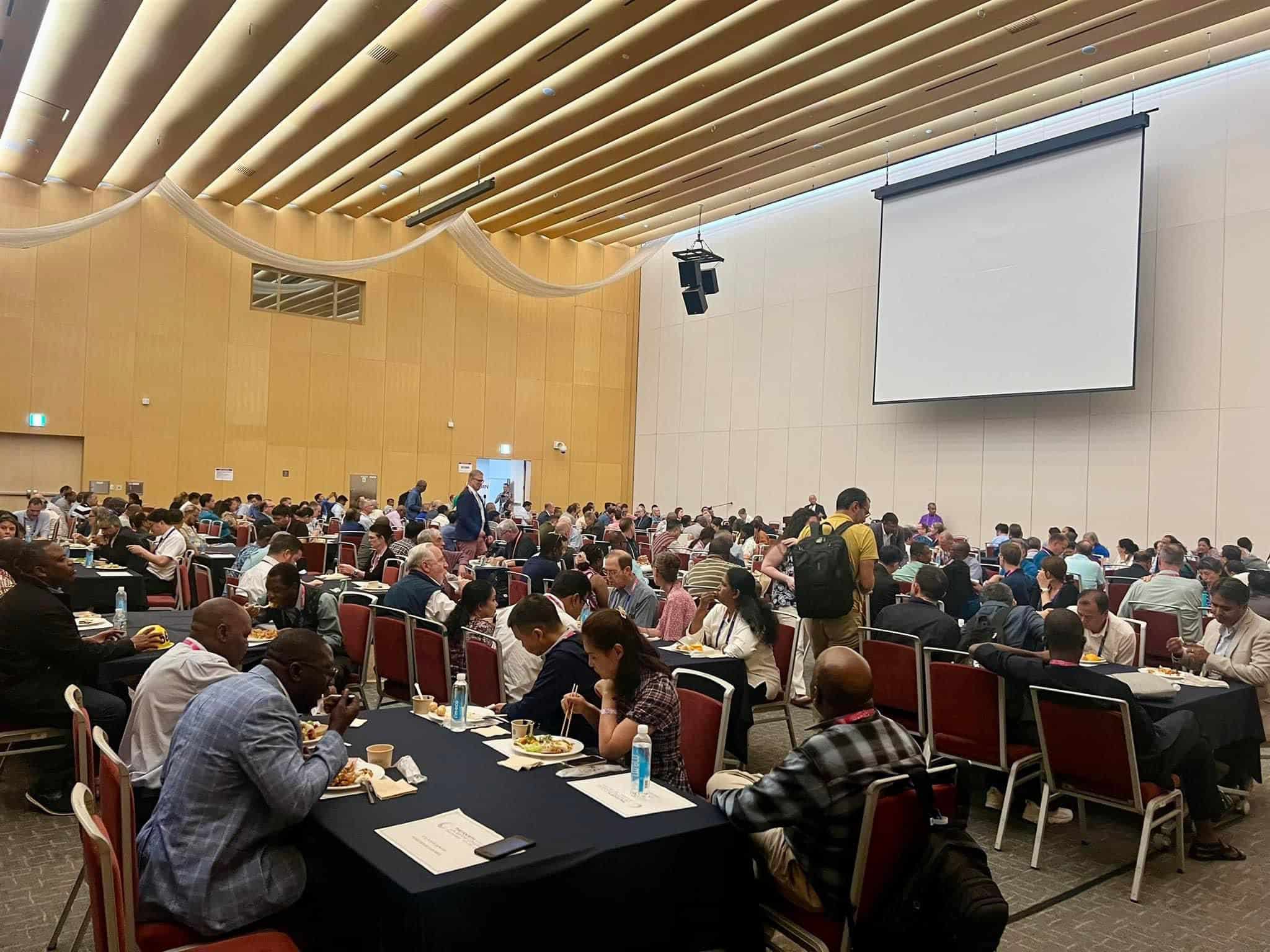When you’re smack in the middle of a seemingly hopeless situation, what do you do?
Never have I imagined that the world would be shut down as it has been. It has made us realize how vulnerable we are to the forces of God’s creation: a virus, jumping to a human, takes over and then quickly transmits itself so quickly, without any of us knowing what is going on.
We applaud those on the front lines: hospital and medical staff, first responders, scientists and of course parents who work hard to survive kids-at-home for weeks.
As a follower of Jesus, I ask, what do we have to say in this time? Let me remind you of a famous story of Jesus, and how he handled a problem.
It was in the middle of the day. Thousands had followed Jesus out into the countryside and here it was time to eat, but there was no food. Blood sugar challenges would soon scream for attention.
I think we can agree on this: Jesus had a problem. A huge problem. There wasn’t food to even begin to solve the problem. No expertise in food management. And no transportation to move it on site. In this story of crisis management, Jesus provides us with creative and important clues on what to do in a crisis.
The first is, begin with what you have.
Some might expect Jesus to call for a band of angels to haul in sufficient supplies. Jesus had no intention of doing this.
Instead he asked, “What do we have?” A search discovered a young lad with a few fish and bread for lunch. A meagre supply which was quickly discounted by the disciples.
Here’s the lesson from Jesus: begin with what you have. Which begs the question: what do I have?
A crisis can shut us down, it can become so unmanageable and traumatic that we become fixated on the problem. In this series, we’ve traced the thread of hope and have seen that hope enables us to see beyond the problem, framed by a profound awareness that God is, and that he cares.
Hope doesn’t ignore the fact that there is no food. Instead hope says, “Yes I realize we lack food, but that isn’t the only factor at play here – Jesus is here.”
Without hope the boy’s lunch would be seen as only sufficient for himself. Hope casts an entirely different light on the problem. And it took Jesus to wake up his disciples to see the possibility.
We first learn from Jesus that in solving a problem, begin with what you have. Hope is not fanaticizing. It sees what is, but it embraces a conscious awareness that within the need, Jesus is here.
Then notice the second feature of this lesson of facing trouble. He asks the boy to give his lunch away. And here is where we learn this: we never know what we have until we give it away.
Remember how wheat is grown? Drop a seed into the ground and as the epidermis rots away the wheat germ grows into a stock loaded with a head of wheat. But nothing happens until something dies. Nothing multiplies until something is given away.
The boy’s lunch would feed him. His first thought might have been, “Hey guys, this is mine. Mom made it for me. If I give it to you, then I’ll have nothing.” But he saw it differently. He gave it to Jesus. He knew the essence of what he had, but he could never have imagined that it could become something much greater. Like him, it’s hard for us to imagine the power and potential of what we have. What we have seems so insignificant, so normal, so pedestrian, so unimaginative. But not in God’s eyes.
God’s supply is not made available by magic. God isn’t into those kinds of games. He works within his creation. He takes that which is ours, and as we in turn are generous, giving it away, when blessed by him it has the power of multiplication. Ask, “Lord what do I have?” Then ask, “what does it mean to turn it over to you?”
Hope opens my eyes to see that even with the surrounding issues, even though on the countryside we are without food, two things are real: We have what we have, and Jesus is here.
Remember we never know what we have until we give it away. Please join me in this prayer:
Lord Jesus, I do have this to give. Plant in me the spirit of generosity so your multiplying touch will take this modest offering and use it to bless others. Amen
Hope in Crisis #6
Brian C. Stiller, Global Ambassador
The World Evangelical Alliance
2020]]>





Stay Connected